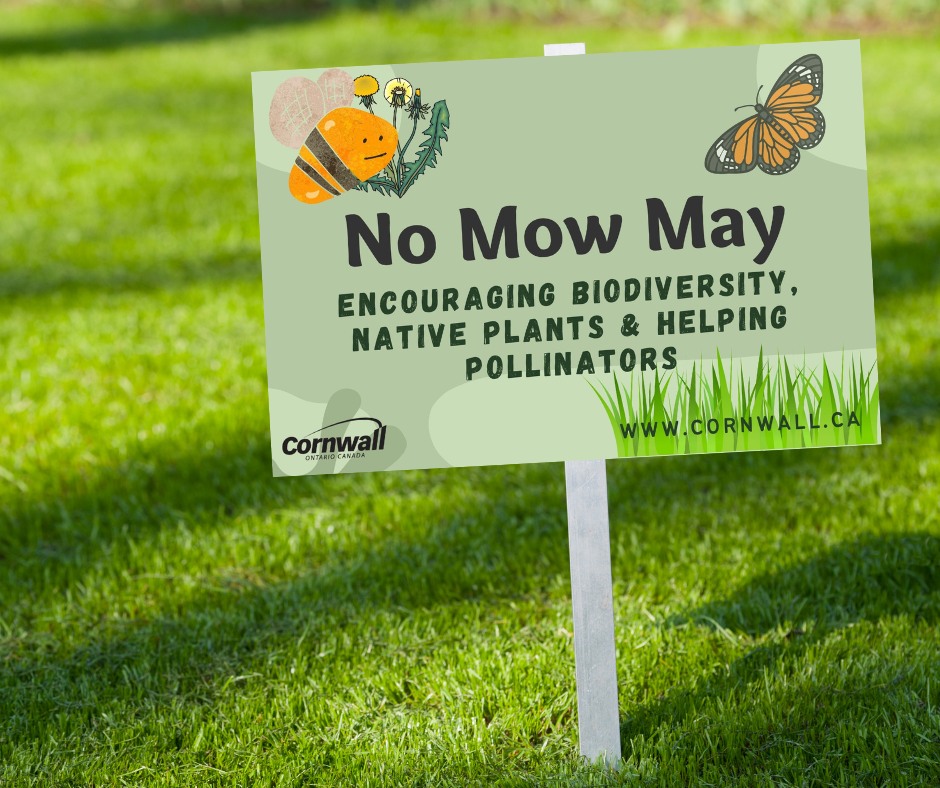Grass in the City of Cornwall will be a bit longer in the month of May — but fear not, there’s a great reason behind it.
During its February 13, 2023, meeting, City of Cornwall Council approved this year’s No Mow May. The initiative aims at helping pollinators in public and private greenspaces. That is done by not mowing for an entire month.
To do so, the City of Cornwall will waive section 3 of its Yard Maintenance By-Law 2013-212 for all of May.
“By allowing grasses and so-called weeds to grow in spring, you are assisting local pollinators, and helping to increase biodiversity,” said Sustainability Project Coordinator, Angela Parker. “Biodiversity protects us against climate change; it ensures food security; it helps fight disease; and it even generates economic benefits. There is nothing wrong will adopting a do-less mentality for your lawn. Every little bit helps.”
Anyone wanting to participate can voluntarily register their property through the City of Cornwall’s website. No Mow May signs will be available for pick up during this year’s Eco Day, on April 22 at Lamoureux Park.
“By-Law Services recognizes the ecological importance of No Mow May, and we are pleased to offer an opportunity for residents to reconsider their yard maintenance practices during the month of May,” said Charles Bray, Manager of the Building & By-Law Division.
In addition to increasing food sources for pollinators, not mowing grass in May also prevents disturbance of overwintering insects and amphibians that may be burrowed or hiding in leaves and lawns. It should also be noted that over 80 per cent of all flowering plants rely on pollinators to produce seeds.
Letting lawns grow and weeds and flowers to prosper also reduces a homeowner’s carbon footprint, as people do not have to cut their grass using gas mowers, which aligns directly with the City of Cornwall’s Zero Carbon goal.
“No Mow May aligns with the City of Cornwall’s Strategic Priority of Being Leaders in Sustainability and Climate Change Impact,” said Environmental Services Manager, Stephen Romano. “This is just one of many environmentally conscious initiatives that we hope to begin implementing in the community to adapt to climate change and improve our biodiversity.”



